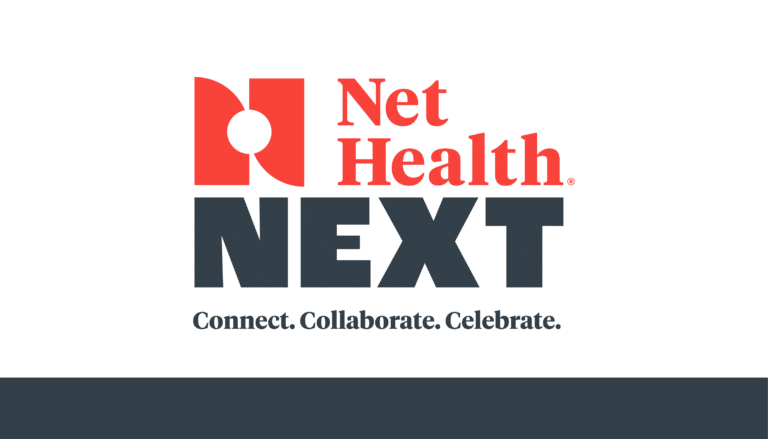July 28, 2022 | Net Health
3 Minute Read
Upcoming Flu Season & Employee Health: What to Know
Pandemic precautions such as masking, hand washing, and social distancing helped reduce flu cases in 2020 and 2021. While that’s good news, diligently avoiding pathogens is likely to result in lower levels of immunity to the flu in 2022/2023.1 Low influenza rates could also complicate the creation of the next flu vaccine, which depends on collecting samples from a wide variety of recent flu patients.2
Regardless, it’s crucial for healthcare employees to get vaccinated against the flu early in the season when vaccines become available. That’s why we’ve put together these guidelines to help Employee Health departments plan for the upcoming flu season.
Prepare For Another Flu Season Complicated by COVID
The Centers for Disease Control (CDC) recommends that people get their flu vaccine by the end of October, at the latest, so they can be protected by antibodies by the time flu season hits its peak in January and February. In Fall 2022, healthcare workers will likely be eligible for an updated COVID booster as well.
In late June, the U.S. Food and Drug Administration’s (FDA) Vaccines and Related Biological Products Advisory Committee suggested changing the current vaccine strain composition of COVID-19 booster for the 2022 fall and winter seasons to create a more robust response to the Omicron variants. 3
High transmission rates of both diseases may necessitate double vaccinations in the fall for healthcare workers, depending on state law and employer policies. Therefore, planning to administer both vaccines at the same appointment can save time and money for those running mobile clinics or scheduling vaccination appointments for staff. It is safe to administer both vaccines at the same time.4
Learn About the CDC’s New Guidelines for Seniors
On June 30, 2022, CDC adopted the decision of its Advisory Committee on Immunization Practices (ACIP) for the use of higher dose or adjuvanted flu vaccines for adults 65 years and older.5
While workers over age 65 will be in the minority, Employee Health departments should be prepared to abide by this guidance and have vaccines on hand that meet the recommendation for older workers.
Plan Ahead to Avoid Logistical Issues
Employee Health departments may handle all aspects of the staff vaccination process, from registration to observation after receiving the vaccine. This is in addition to collecting and storing vaccine verifications.
For those who handle on-site mobile clinics, preparing to order, store, handle, and administer the vaccines requires planning far in advance, especially if supply chain issues become a problem. These issues can delay the arrival of both vaccines and the materials used to deliver them, from syringes to needle tips.
Any kink in the supply chain can hold up the vaccination process and set Employee Health departments back weeks.
Ensure You’re Up-To-Date on New Healthcare Worker Immunization Laws
The CDC does not issue mandates on flu vaccines for health care settings, only recommendations. These recommendations come from ACIP and are published in the Morbidity and Mortality Weekly Report (MMWR). However, not all states have flu vaccine mandates for healthcare workers. If an Employee Health department is responsible for staff who practice in more than one state, it’s crucial to know all updated laws.
In states where the flu vaccine is mandated for healthcare workers as part of their employment, Employee Health departments face the pressure of collecting and storing accurate data each year to abide by compliance laws. A lack of compliance may result in fines. That’s why it’s crucial to invest in infection control software that can track, remind, help schedule, and report data about employee flu vaccine compliance.
Get Ahead of the 2022/2023 Flu Season
The vaccination of health care professionals has been associated with reduced absenteeism and a decrease in deaths among patients in some settings, such as nursing homes or healthcare facilities with elderly patients.6
While COVID and supply chain issues may complicate the 2022/2023 flu season, EH departments can still get a head start on vaccine planning and tracking in the summer. Gathering the latest information on new vaccines and changing state laws, and ensuring healthcare facilities have the right software tools to plan and track vaccinations are essential for EH departments working to stay safe and compliant.
If you’re planning your annual Employee Health flu vaccine clinics and/or data collection, Net Health can help you keep your information organized and secure. Just click to schedule a demo of our immunization tracking software.
Note: Net Health makes no representations as to accuracy, completeness, correctness, suitability, or validity of any of the information presented herein. All information is provided on an as-is basis. It is the viewer’s responsibility to verify any and all information presented herein.
Your Employee Health Flu Season Checklist
References:
1 Harvard T.H. Chan School of Public Health, “A Sharp Drop in Flu Cases During COVID-19 Pandemic,” 2021.
2 Science, “COVID Measures Also Suppress Flu – For Now,” January 12, 2021.
3 Food and Drug Administration (FDA), “Coronavirus (COVID-19) Update: FDA Recommends Inclusion of Omicron BA.4/5 Component for COVID-19 Vaccine Booster Doses,” June 30, 2022.
4 Centers for Disease Control (CDC), “Multiple Vaccinations at Once,” August 14, 2020.
5 Centers for Disease Control (CDC), “CDC Director Adopts Preference for Specific Flu Vaccines for Seniors,” June 30, 2022.6 Centers for Disease Control (CDC), “Surveillance for Healthcare Personnel Vaccination,” Accessed July 6, 2022.





